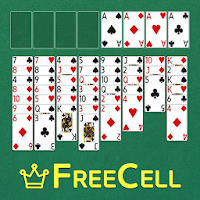The anonymous developer behind the critically acclaimed *Balatro*, known only as Local Thunk, recently shared an in-depth development history on his personal blog. In it, he reveals a surprising detail: despite creating what many now consider one of the best roguelike deckbuilders, he intentionally avoided playing any roguelike games during most of the game’s development—except for one.
As outlined in the detailed timeline, by December 2021, Local Thunk made a deliberate decision to stop engaging with roguelike titles entirely. His reasoning was not about crafting a more polished product, but rather preserving the joy of discovery and experimentation:
"I want to be crystal clear here: this wasn't to make a better game. This was because making games is my hobby—not releasing them or profiting from them. Naively exploring roguelike design, especially in the realm of deckbuilding—which I had never played before—was part of the fun. I wanted to make mistakes, reinvent the wheel, and avoid borrowing established mechanics from other games. Sure, that might have led to a tighter experience, but it would have taken away from what I love most about game development."
However, over a year and a half later, Local Thunk broke his own rule—for just one game. He downloaded *Slay the Spire*. His reaction? “Holy shit,” he wrote. “Now **that** is a game.” Initially, he intended to study its controller implementation for a card game, hoping to resolve some input-related issues in *Balatro*. But like many before him, he got hooked:
"I did this because I was having some issues with controller inputs and wanted to see how they handled it for a card game—but I ended up getting sucked in. Thank goodness I avoided playing it until now because I surely would have just copied their incredible design—intentionally or subconsciously."
Development Insights and Lost Features
Local Thunk's post-mortem is packed with fascinating tidbits from the game's journey. For example, early in development, the working folder for *Balatro* was simply named "CardGame"—a placeholder that stuck all the way through production. Additionally, the game was originally referred to internally as “Joker Poker” for much of its development cycle.
He also dives into several features that were considered but ultimately cut:
- A system where the only way to upgrade items was by upgrading cards within the deck, similar to *Super Auto Pets*, allowing multiple levels per card.
- An alternative currency for rerolls, separate from standard in-game funds.
- A “golden seal” mechanic that would return a played card to your hand if you skipped all blinds.
How Balatro Got to 150 Jokers
One of the more amusing stories revolves around the final number of jokers in the game—150. According to Local Thunk, the original plan was for 120 jokers. During a meeting with publisher Playstack in October 2023, he mentioned the figure of 120. But in a follow-up meeting, someone referenced 150. Uncertain whether he had misstated the number or they had misheard, he decided 150 sounded better—and added 30 more jokers to the lineup.
The Origin of “Local Thunk”
The story behind the name “Local Thunk” is equally charming. It originated when his partner was learning to code in R and asked him how he names variables. After a lengthy explanation about naming conventions, she said, “I like to call mine thunk.” The term stuck—and given that Lua (the language Local Thunk uses) often declares variables with the local keyword, the handle “local thunk” was born.
Though he didn’t use the name immediately, it eventually became his public developer identity—a nod to both inside humor and his coding process.
Final Thoughts
There’s much more to read in Local Thunk’s full blog post, which offers a rare glimpse into the mind of a solo developer who chose curiosity and creative freedom over formulaic design. *Balatro* has been widely praised—including earning a 9/10 from IGN—with critics calling it “A deck-builder of endlessly satisfying proportions, it's the sort of fun that threatens to derail whole weekend plans as you stay awake far too late staring into the eyes of a jester tempting you in for just one more run.”















